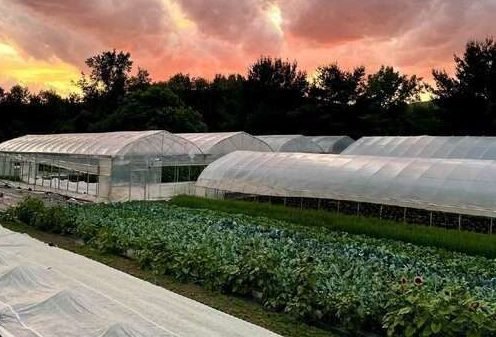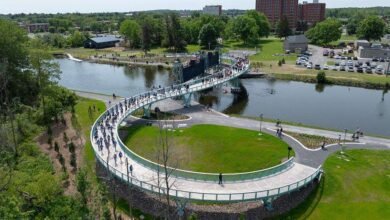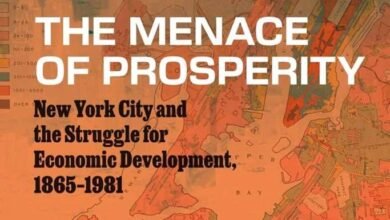Adirondack Council Shifts From Small Farm Grant Program


 After ten years, the Adirondack Council is ending its Adirondack Farmer and Value-Added Producer Micro-Grant Program.
After ten years, the Adirondack Council is ending its Adirondack Farmer and Value-Added Producer Micro-Grant Program.
The program was started in 2016 following a roundtable where farmers identified the need for smaller, more accessible grant money to implement environmentally beneficial projects on their farms.
In 2018, the Council adopted the Essex Farm Institute (EFI) to strengthen its support for farmers and open space protection in the Adirondacks. With experienced farmers on staff — first Racey Henderson, now Dillon Klepetar — EFI took over management of the Micro-Grant Program.
To honor a decade of impact — including farmers’ and producers’ commitment to carbon-, energy-, water-, and ecosystem-friendly projects — EFI has released a 28-page report on the Micro-Grant Program, entitled Agricultural Sustainability in the Adirondacks, illustrating the impact of a decade of micro-grants for local farms and producers.
In addition to helping farms become more financially sound and sustainable, the report notes that the micro-grants have aided the Adirondack Park by:
Reducing local greenhouse gas emissions by 3,000 metric tons through innovations and upgrades
Diverting more than 100 tons of landfill waste into compost or other inputs on farms
Saving over 2,800 hours of farm labor through efficiency gains
Conserving and/or reusing 100,000 gallons of water
Protecting 41 acres of river corridor with native plants and other interventions
Increasing local food access and education by supporting producer-led outreach
Adirondack Council Executive Director Raul J. Aguirre said the Micro-Grant Program had been a major success and thanked Courtney and Nat Klipper of the Klipper Fund for sponsoring the program. Over the past decade, it allowed the Adirondack Council to invest $263,997.25 in Adirondack farms and value-added producers for over 140 sustainability projects.
The Council is establishing a new “Working Lands Program,” overseen by Director of Conservation Jackie Bowen.
“In addition to supporting local farms, the program will aim to promote healthy private forests, advance carbon sequestration, and strengthen supply chains for food and wood products to boost the regional economy,” Bowen said. “As private lands face growing political, climate, and financial pressures, this new approach will better advocate for and support resilient communities within the Park’s protected landscape.”
Established in 1975, the Adirondack Council is a privately funded, not-for-profit environmental advocacy organization dedicated to the ecological integrity and wild character of the Adirondack Park.
Photo: Essex Farm Institute.
Source link




